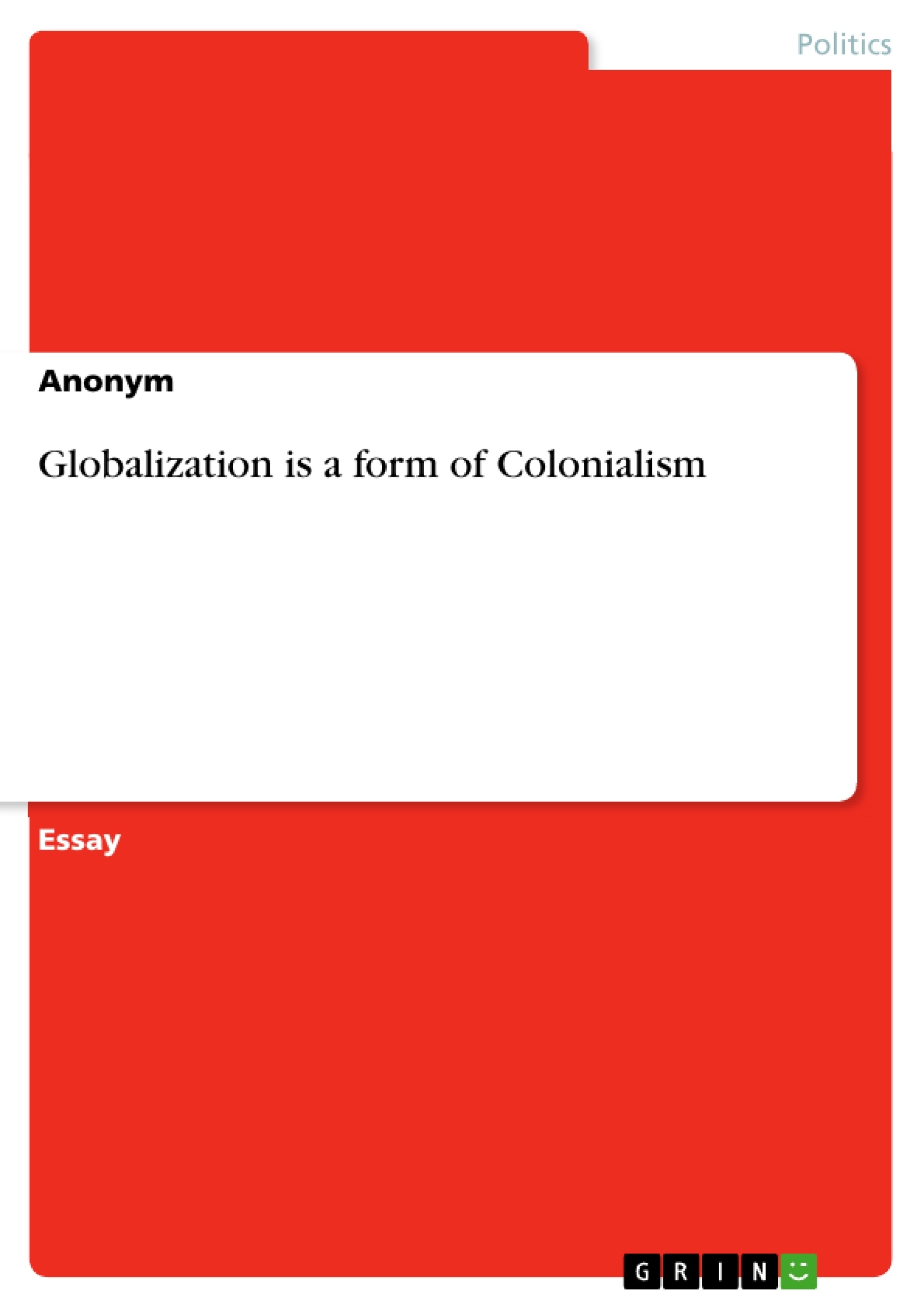This paper analyzes the historical phenomenon of colonialism and globalization and the similarities in their ideologies. In addition, using examples of nations and multinational corporations, this paper tries to find economic and social connections between colonialism and globalization in the behavior of suppressor and oppressor. Furthermore, the term neo-colonialism is going to be researched and some recent examples of expansion and discrimination in different countries are shown.
Table of Contents
- Summary
- Colonialism
- Globalization
- Globalization as a Form of Colonialism
- Monsanto and the Negative Impacts of Globalization
- Wal-Mart and the Negative Impacts of Globalization
Objectives and Key Themes
This paper analyzes the historical phenomenon of colonialism and globalization, exploring the similarities in their ideologies. The author aims to demonstrate how globalization, in its current form, functions as a form of neo-colonialism, preventing the development of third-world countries. Using specific examples of multinational corporations, the paper further examines the economic and social connections between colonialism and globalization. Key themes and objectives of this paper include:- Exploring the historical and ideological similarities between colonialism and globalization.
- Examining the economic and social consequences of globalization on third-world countries.
- Analyzing the role of multinational corporations in perpetuating neo-colonialist practices.
- Investigating the impact of globalization on local communities and industries.
- Highlighting the ethical and human rights implications of globalization.
Chapter Summaries
- Summary: This chapter introduces the main argument of the paper, which posits that globalization is a form of colonialism that hinders the development of third-world countries. The author outlines the historical context of colonialism and globalization, highlighting the parallels in their ideologies and practices.
- Colonialism: This chapter defines colonialism as a historical phenomenon characterized by the expansion of political influence and control over colonies. The author discusses the impact of colonialism on the social structure, government, and economy of colonized regions, emphasizing the unequal power dynamics that arose.
- Globalization: This chapter examines the phenomenon of globalization, its various aspects, and its impact on the world economy, society, and culture. The author discusses the benefits and drawbacks of globalization, including the potential for economic growth but also the negative consequences like increased wage inequality and environmental degradation.
- Globalization as a Form of Colonialism: This chapter explores the similarities between colonialism and globalization, arguing that globalization can be viewed as a modern form of colonialism. The author discusses how globalization can perpetuate the exploitation of third-world countries by powerful multinational corporations.
- Monsanto and the Negative Impacts of Globalization: This chapter analyzes the practices of the multinational agricultural biotechnology corporation Monsanto, highlighting its role in controlling the agricultural sector in developing countries. The author examines the use of genetically modified seeds and their impact on local farmers and the environment.
- Wal-Mart and the Negative Impacts of Globalization: This chapter focuses on the practices of Wal-Mart, a large multinational corporation, and its impact on global labor practices. The author discusses Wal-Mart's aggressive business practices and its alleged violations of human rights in its quest for low prices and high profits.
Keywords
The key concepts and themes explored in this paper include colonialism, globalization, neo-colonialism, multinational corporations, economic development, human rights, exploitation, and the impact of globalization on developing countries. The paper specifically examines the practices of Monsanto and Wal-Mart as examples of the negative consequences of globalization.
Final del extracto de 7 páginas
- subir
- Citar trabajo
- Anonym (Autor), 2011, Globalization is a form of Colonialism, Múnich, GRIN Verlag, https://www.grin.com/document/287753
Leer eBook



